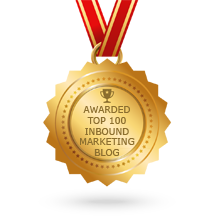If you run a small to medium sized business and don’t have a content strategy in place, you’re already falling behind your competitors. Having an effective content strategy is vital for all types of businesses across a variety of industries. So why is it so important? And what exactly is a content strategy? According to HubSpot, a content strategy is “the piece of your marketing plan and development that refers to the management of pretty much any tangible media that you create and own – written, visual, downloadable,” and so on. A content strategy is important because it helps provide a direction and focus for your content, ensuring that it is relevant, unique and actually solves a problem for your audience. Producing content just for the sake of it is both a waste of your time, and your audiences’ time. Whether you’re just jumping on the content strategy bandwagon now or already have a strategy in place, it’s never the wrong time to start or revisit your plan. In this article, I’m going to teach you the basics of what you need to know to create a winning content strategy.
1. Get Clear on Your Goals
The first step when it comes to creating a winning content strategy is getting clear on your business goals? Are you trying to raise awareness about your brand, improve customer satisfaction, build referrals, generate more leads, improve the quality of the leads, improve the lead to customer close rate or get customers to spend more or come back and buy again?
2. Understand Your Buyers’ Journey
The next step is all about understanding your buyers, who are they and why do they need your product or service? What problem do you solve for them? Then you will need to map out the buyers’ journey – awareness, consideration, decision. What information is important to them at each stage of the buyers’ journey.
How do you educate yourself on all this information about your buyers? You talk to them. Call up your customers, past customers and even people who didn’t buy from you and ask them what information they’re looking for online. Did they do a Google search initially? What did they search for? What information was important to them? When they visited your website what were they looking for? Did they find it? Find out when they like to speak to a sales person, is it in the beginning or do they prefer to do their own research online before speaking to a sales person. Do they go onto social media, talk to their friends or other trusted organisations? This insight is very important before you start on your content strategy.
3. Create a content mapping document
In this document create four columns. The first should list things like: goals, challenges, keywords, web page, ebook, blog articles. The next three columns are for each stage of the buying process – awareness, consideration, decision. Then fill in the information (column A) as it relates to each stage of the buying process (columns B, C & D).
DOWNLOAD THE CONTENT MAPPING DOCUMENT HERE
To come up with the topic ideas use tools like Answer The Public or talk to your sales people about the questions they frequently get asked. Also brain storm different topic ideas that use the keywords your buyers search for. Next, add the different topic ideas, noting whether they’re a web page, ebook, blog article or something else under the relevant stage of the buyers journey.
4. Create a Content Marketing Calendar
Next, you’ll want to create an editorial calendar to plan out all your content. In this calendar, you’ll write down what content you will publish and when you’ll publish it. We use excel for our content calendar and because we document all marketing activities that may influence content, like trade shows, new products launches etc, we created a Marketing Content Calendar you can download here.
In your marketing calendar, you’ll also want to document what lead generation offers you’ll be creating to make sure you give yourself enough time to do the research, write or create the content, design and publish your offers. Or, if you’re outsourcing your content creation, make sure you have the budget approved in advance.
And of course this is where you’ll document your blogs. The downloadable calendar below is set up for a weekly blog but you can easily adjust it to suit how frequently you’ll be publishing a blog. Maybe you’ve decided you’ll publish a blog daily, or three times per week. It’s really up to you! Having a content marketing calendar will help make sure each of your blogs or pieces of content you create has a purpose and is aligned with your business goals and the overall goals and needs of your buyers.
DOWNLOAD CONTENT MARKETING CALENDAR
5. Measure Your Results
Every piece of content you create should have a purpose that is aligned with both your business goals and the goals of your buyers. Your content marketing calendar documents when and what you’ll be publishing and how it aligns to your buyers’ journey, but you also need to know what you’ll be measuring in order to determine if your content is successful or not. Here are some ways to measure your results based on content for each stage of the buyer’s journey:
- Awareness: Google ranking, website traffic, pages views and likes.
- Engagement: Comments, shares and likes on social media or the blog articles.
- Leads: CTA click-throughs, page conversions, email open rate and click-throughs.
I hope this article has provided you with useful information to help you get started with your content strategy. Finding what works for you and your business goals doesn’t always come easily, but if you persist and once you get it right, you’ll begin to see how a winning content strategy can really take your business to new heights.



